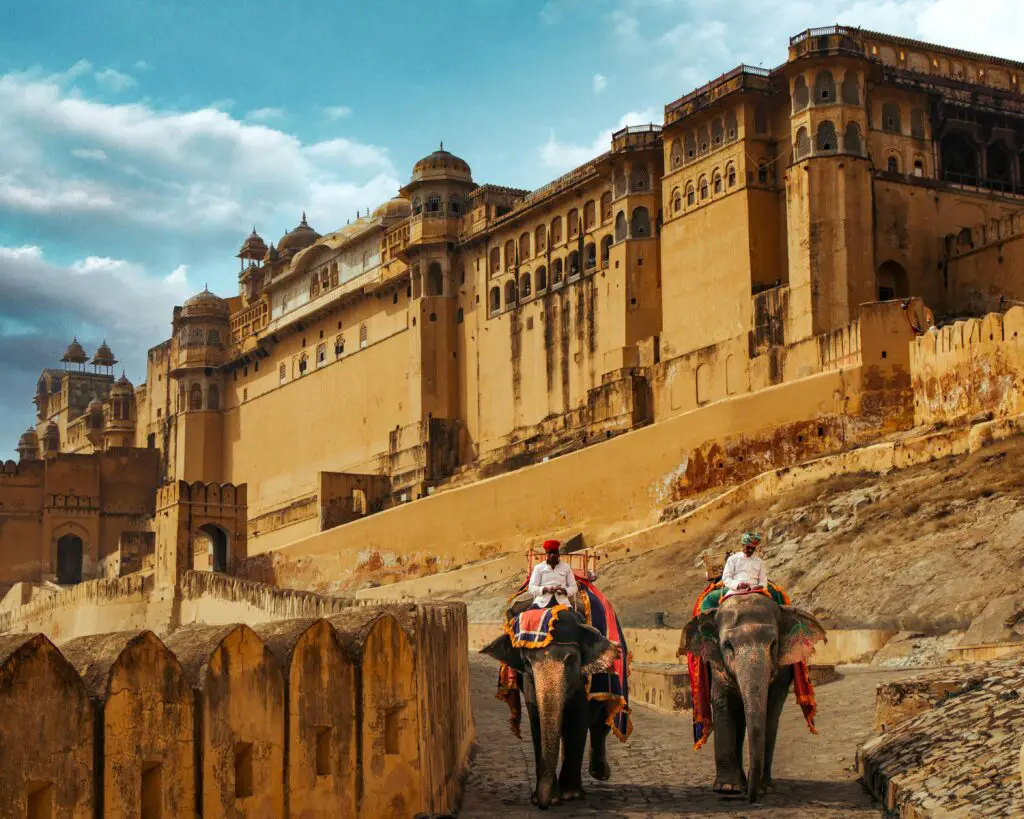Intro
The issue of cruel elephant rides has garnered increasing attention in recent years. Many travelers unknowingly contribute to the suffering of these majestic animals. As awareness grows, the demand for ethical tourism practices has intensified. Recently, the UK has taken a significant step by passing a new law banning advertisements for [cruel elephant rides](https://trippflip.com/rome-may-introduce-admission-fees-for-trevi-fountain-visitors/) and other unethical animal tourism activities. This legislation aims to protect the well-being of elephants and end their exploitation for entertainment. Animal welfare groups are celebrating this change, believing it will reshape the tourism landscape and foster a more compassionate approach to animal interactions.
Cruel Elephant Rides: A Growing Concern
The issue of cruel elephant rides is becoming increasingly alarming. Many tourists still seek these experiences, often unaware of the suffering behind the scenes. Despite the recent passage of a new law in the UK, animal welfare advocates report that adverts for [‘cruel’ elephant rides](https://trippflip.com/overcrowding-in-barcelona-tourists-impact/) are still rising despite new UK law, says charity. This trend raises serious ethical questions about animal exploitation in tourism. These majestic creatures are often subjected to harsh training methods, confined to small enclosures, and forced to carry heavy loads. The need for awareness and action is urgent. It’s essential to educate the public on the realities of these attractions and promote more humane alternatives. The well-being of these elephants depends on our collective effort to end such practices.
Cruel Elephant Rides: New UK Law Overview
The recently passed UK law aims to prohibit advertisements for cruel elephant rides and unethical animal tourism practices. This legislation is a significant step forward in protecting animal welfare. It seeks to minimize the exploitation of animals within the tourism industry. Animal welfare groups have celebrated this move, believing it will decrease demand for such attractions. However, a concerning trend is emerging. Adverts for [‘cruel’ elephant rides](https://trippflip.com/ethical-tourism-initiatives-across-europe/) are still rising despite new UK law, says charity. This persistence highlights the ongoing struggle against these harmful practices. While the law marks progress, continued vigilance is necessary to ensure the welfare of these magnificent creatures. Only then can we transition toward more ethical tourism practices that respect wildlife.
Key Takeaways
– The UK has enacted a law banning ads for cruel elephant rides.
– The legislation aims to protect animal welfare in tourism.
– Animal welfare organizations support the ban.
– The law may reduce demand for unethical attractions.
– However, ads for cruel elephant rides are still increasing.
– Ongoing awareness is crucial for animal protection.
– The law is a step toward ethical tourism practices.
– Consumers play a vital role in supporting animal welfare.
– Ethical tourism promotes the well-being of animals.
– Continued vigilance is essential to enforce the new regulations.
Cruel Elephant Rides
Despite the new UK law banning advertisements for unethical animal tourism, the situation remains troubling. Ads for [‘cruel’ elephant rides](https://trippflip.com/what-are-the-best-destinations-in-september-2/) still rising despite the new UK law, says charity. This raises serious ethical concerns about animal welfare. Organizations advocating for animal rights express their disappointment. They expected a decrease in promotional materials for such attractions. However, the influx of these adverts suggests a lack of commitment to ethical tourism. Many travelers remain unaware of the suffering behind these rides. Elephants often endure harsh training methods and poor living conditions. As awareness grows, so too does the demand for responsible alternatives. It is vital for both consumers and the industry to prioritize animal welfare. This ongoing challenge calls for heightened vigilance from all of us.
Cruel elephant rides
The ethical concerns surrounding cruel elephant rides are profound. These rides often involve significant harm and distress to the animals involved. Elephants are not meant to carry heavy loads or endure harsh training methods. Many endure pain and suffering behind the scenes for the sake of entertainment and profit. Despite the recent legislation in the UK, which aims to curb the promotion of such practices, adverts for [‘cruel’ elephant rides](https://trippflip.com/what-is-a-travel-nurse-2/) still rising despite new UK law, says charity. This alarming trend highlights a disconnect between legal measures and the actual exploitation occurring in the industry. The public must recognize that these ads contribute to ongoing animal suffering. The call for ethical tourism practices is growing louder, yet the industry seems resistant to change. Compassionate choices in travel can lead to a more humane world for elephants and other animals affected by such cruel practices.
Cruel Elephant Rides: The Ongoing Challenge
Public awareness plays a crucial role in shaping the tourism industry. Although the new UK law bans advertisements for elephant rides, the reality remains troubling. Reports indicate that adverts for [‘cruel’ elephant rides](https://trippflip.com/how-to-travel-for-free/) still rising despite new UK law, says charity. This persistence highlights the urgent need for consumer vigilance and education. Many tourists remain unaware of the unethical practices behind these attractions. With more information, they can make informed choices. Compassionate travelers can sway the industry toward kinder practices. Each shared story or social media post can raise awareness, sparking change. Together, we can advocate for the well-being of these magnificent creatures, ensuring their protection and dignity. Ultimately, informed choices lead to a more ethical tourism experience for all.
Cruel Elephant Rides: The Role of Social Media in Exposing Abuse
Social media has become a powerful ally in the fight against cruel elephant rides. Platforms like Instagram and Facebook allow users to share their experiences and raise awareness about animal cruelty. Videos and images showing the harsh realities of elephant rides can reach millions in an instant. These posts often include poignant messages that resonate with viewers. As a result, the public is more informed about the exploitation these majestic animals face.
Despite recent laws, the problem persists. Ads for [‘cruel’ elephant rides](https://trippflip.com/best-greek-islands-for-your-next-vacation/) still rising despite new UK law, says charity, highlight an ongoing challenge. Animal welfare organizations utilize social media to mobilize supporters and pressure companies to change their practices. This collective effort can lead to real change in the tourism industry, promoting a more ethical approach. As consumers become more aware, they can demand better treatment of animals everywhere.
Cruel elephant rides: Taking Action Against Exploitation
To combat the ongoing issue of cruel elephant rides, consumers can take meaningful steps. First, become informed about the implications of animal tourism. Research attractions before visiting and choose those that prioritize animal welfare. Support organizations that advocate for ethical tourism practices. It’s important to share this knowledge with friends and family. Social media can amplify your voice, creating awareness. Remember, adverts for [‘cruel’ elephant rides](https://trippflip.com/can-travel-nurses-get-unemployment-2/) still rising despite new UK law, says charity. By refusing to patronize establishments that exploit animals, you can drive change. Additionally, consider signing petitions or donating to animal welfare organizations. Every small action contributes to a larger movement for humane treatment of animals. Your choices matter; they can reshape the future of tourism.
Cruel Elephant Rides: Understanding the Impact and Need for Change
Elephants are magnificent creatures. They captivate our hearts with their grace and intelligence. But, underneath the allure of riding these gentle giants lies a harsh reality. Many are unaware of the cruelty behind elephant rides. The picturesque scenes of tourists atop elephants often mask the pain and suffering these animals endure.
Imagine the daily ordeal of an elephant used for rides. The training process, often referred to as “the crush,” is nothing short of heartbreaking. To make elephants submissive enough for rides, they undergo severe physical and psychological trauma. The lucrative nature of the tourism industry fuels this practice. It’s time to change the narrative and prioritize the welfare of these majestic creatures.
Fortunately, there are alternatives. If you’re planning a trip, consider [ethical wildlife experiences](https://trippflip.com/how-to-get-cheap-flights/). You can easily book a flight to destinations known for their elephant sanctuaries, where animals roam free and are treated with respect. While you’re at it, remember to use a [travel SIM card](https://airalo.tp.st/KmpbLXXF) to stay connected and share your experiences with family and friends. Choosing accommodations that support ethical wildlife tourism also makes a difference. By making these conscious choices, we can collectively work towards putting an end to cruel elephant rides.
What are cruel elephant rides?
Cruel elephant rides involve tourists riding on elephants that have been subjected to harmful training and living conditions. These practices are often hidden from public view, but they involve significant pain and distress for the animals.
Why are elephant rides considered cruel?
Elephants used for rides are often captured from the wild and subjected to harsh training processes. They endure physical abuse to break their spirits, making them compliant for tourist rides, which causes long-term physical and emotional damage.
How can tourists help stop cruel elephant rides?
Travelers can help by refusing to participate in elephant rides and opting for ethical alternatives. Book tours that offer educational experiences about elephants in their natural habitat. Supporting organizations that protect wildlife welfare is also crucial.
Are there ethical alternatives to elephant rides?
Yes, many sanctuaries offer ethical elephant experiences where you can observe these majestic animals in a natural setting without causing them harm. These sanctuaries prioritize animal welfare and rehabilitation.
Can I still see elephants while traveling responsibly?
Absolutely. By booking a flight to a destination with ethical sanctuaries, you can enjoy viewing elephants in a way that supports their well-being. Staying in eco-friendly lodgings can also enhance your responsible travel experience.
How do I identify ethical elephant sanctuaries?
Research is key. Look for sanctuaries that focus on conservation, rehabilitation, and education rather than entertainment. Organizations such as [World Animal Protection](https://trippflip.com/can-travel-cause-constipation/) provide valuable resources for identifying ethical venues.
What should I consider when booking accommodations near elephant sanctuaries?
Choose lodgings that promote sustainable tourism and support local conservation efforts. Some accommodations partner with sanctuaries to offer eco-friendly stays that align with ethical wildlife practices.


